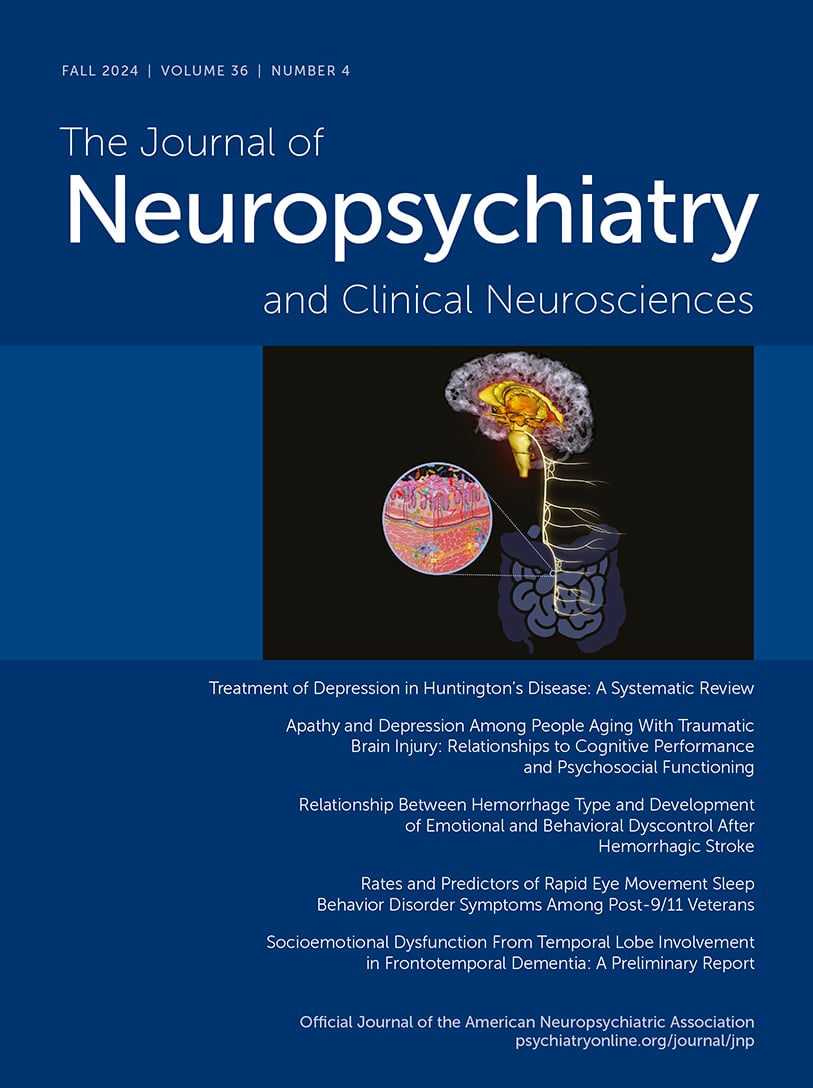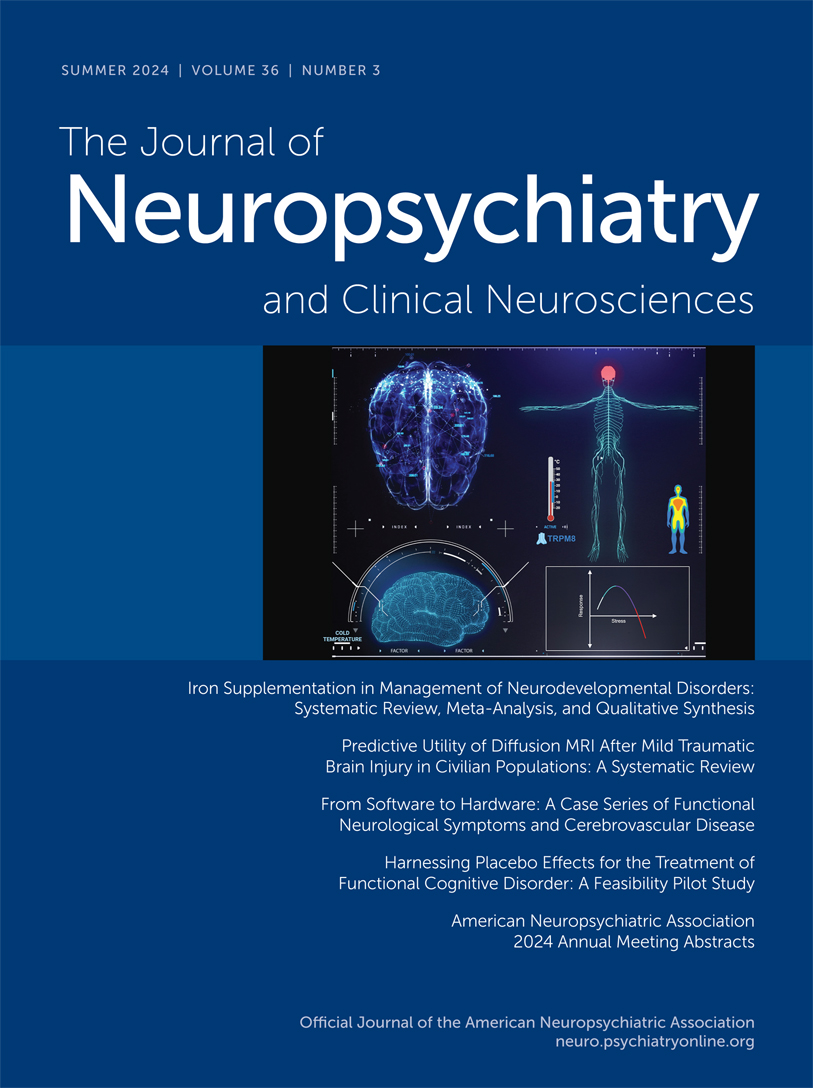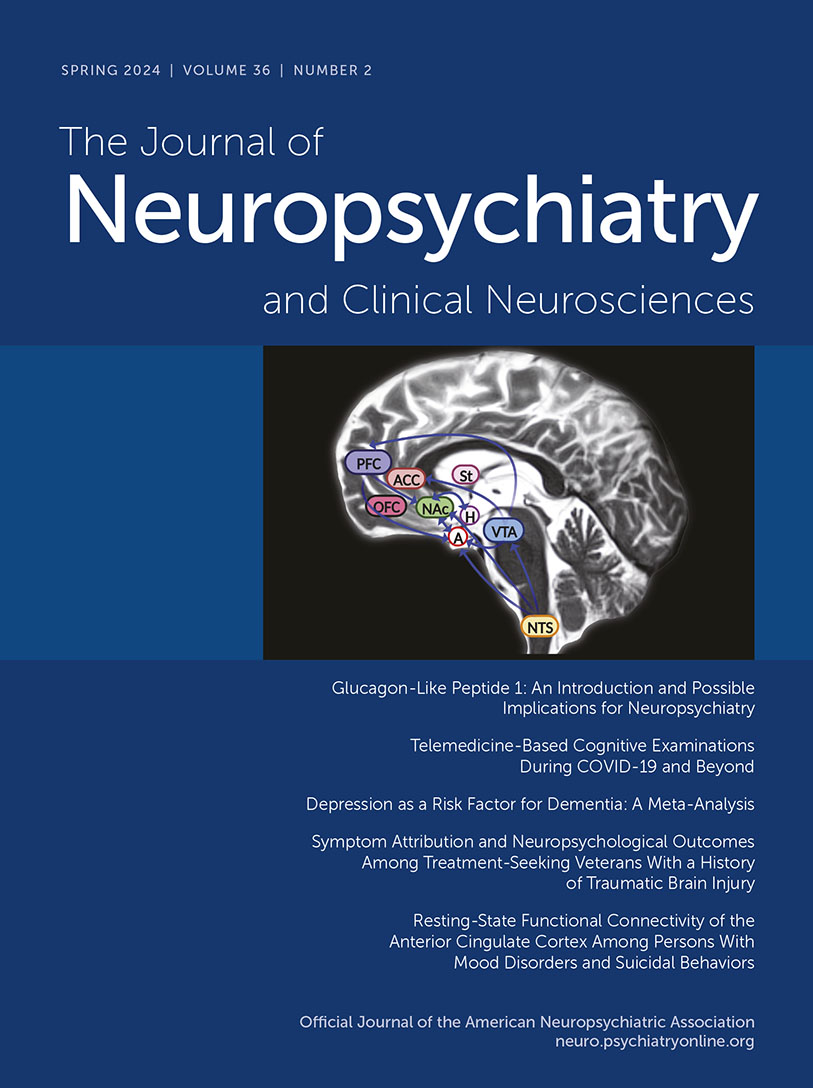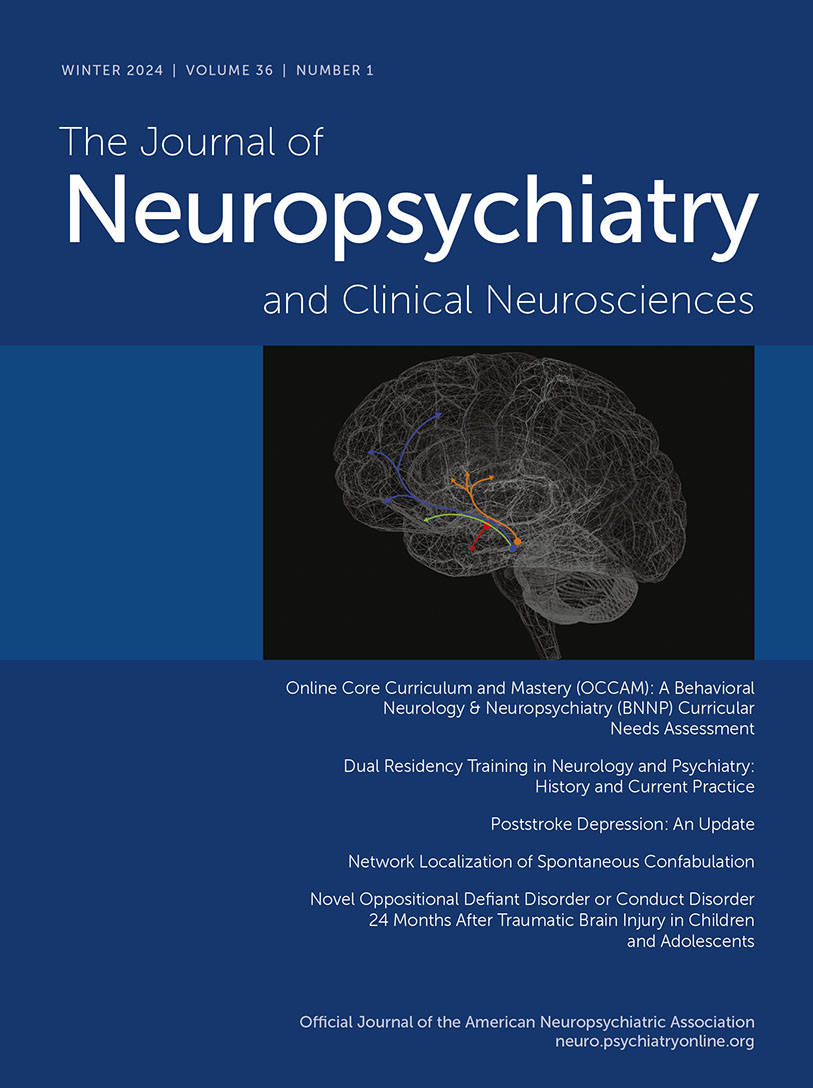The Journal of Neuropsychiatry and Clinical Neurosciences
- Volume 27
- Number 3
- July 2015
Windows to the Brain
Features
Special Articles
Publication date: 06 February 2015
Pages179–187Objective: Alexithymia has been considered a personality trait characterized by difficulties identifying and describing feelings and an externally oriented thinking style. A high rate of alexithymia is reported among patients with psychiatric and ...
https://doi.org/10.1176/appi.neuropsych.14070169Publication date: 11 May 2015
Pages188–192This multicenter cross-sectional study investigates the role of coping behaviors of inpatients with severe burn injuries that determined their development of post-traumatic stress disorder (PTSD) in burn specialty center in South China. Sixty-four ...
https://doi.org/10.1176/appi.neuropsych.13110334Features
Regular Articles
Publication date: 11 May 2015
Pages193–198Disinhibition, the inability to inhibit inappropriate behavior, is seen in frontal-temporal degeneration, Alzheimer’s disease, and stroke. Behavioral disinhibition leads to social and emotional impairments, including impulsive behavior and disregard for ...
https://doi.org/10.1176/appi.neuropsych.14060126Publication date: 01 July 2015
Pages199–205Neurological soft signs (NSSs) tap into a variety of perceptual, motor, and cognitive functions. The authors administered a battery of NSSs serially to a group of 14 pilot patients recruited from an emergency room after they experienced a mild traumatic ...
https://doi.org/10.1176/appi.neuropsych.14050111Publication date: 12 June 2015
Pages206–212A key neuropsychiatric symptom of Huntington’s disease, irritability, contributes to a decline in functioning and to great distress in both patients and their caregivers. To identify mutation carriers prone to the development of irritability, this study ...
https://doi.org/10.1176/appi.neuropsych.14030051Publication date: 31 October 2014
Pages213–218Due to controversy regarding the influence of apathy on quality of life (QoL), the authors examined the independent influence of apathy, depression, and trait anxiety in a nondemented sample of patients with Parkinson disease (PD). Participants (N=107) ...
https://doi.org/10.1176/appi.neuropsych.13120380Publication date: 12 June 2015
Pages219–227The present research explored the main factors able to influence the subjects’ choices in the case of decisions and distinguish between high- and low-risk decisions. Behavioral responses (Iowa Gambling Task [IGT]), meta-cognitive strategy, and event-...
https://doi.org/10.1176/appi.neuropsych.14070165Publication date: 12 June 2015
Pages228–236The DSM-5 ADHD and Disruptive Behaviors Work Group proposed two major changes for diagnosis of attention deficit hyperactivity disorder (ADHD) in adults: 1) inclusion of four new impulsivity symptoms and 2) reduction in the number of symptoms required for ...
https://doi.org/10.1176/appi.neuropsych.13060137Features
Clinical and Research Reports
Publication date: 12 June 2015
Pages237–239A putative right anterior insula metabolism biomarker predictive of treatment outcomes was retrospectively applied to 30 depressed psychotherapy—or escitalopram-treated nonremitters who entered combination treatment. Patients whose added treatment matched ...
https://doi.org/10.1176/appi.neuropsych.14030048Publication date: 11 May 2015
Pages240–243Neuroimaging evidence suggests deficits in affective regulation in conversion disorder (CD). Dialectical-behavior therapy skills training (DBT-ST) was developed to target emotion dysregulation. This study was aimed to test the feasibility of stand-alone ...
https://doi.org/10.1176/appi.neuropsych.13120359Publication date: 12 June 2015
Pages244–247The phonological verbal fluency test can act as a fast screening test to detect cognitive deficits in neurological conditions. In the present study, its utility in the detection of executive deficits in patients with early Parkinson’s disease is ...
https://doi.org/10.1176/appi.neuropsych.14060139Departments
Letters
Departments
Correction
Past Issues
View Issues Archive
Vol. 36 | No. 4

Vol. 36 | No. 3

Vol. 36 | No. 2
